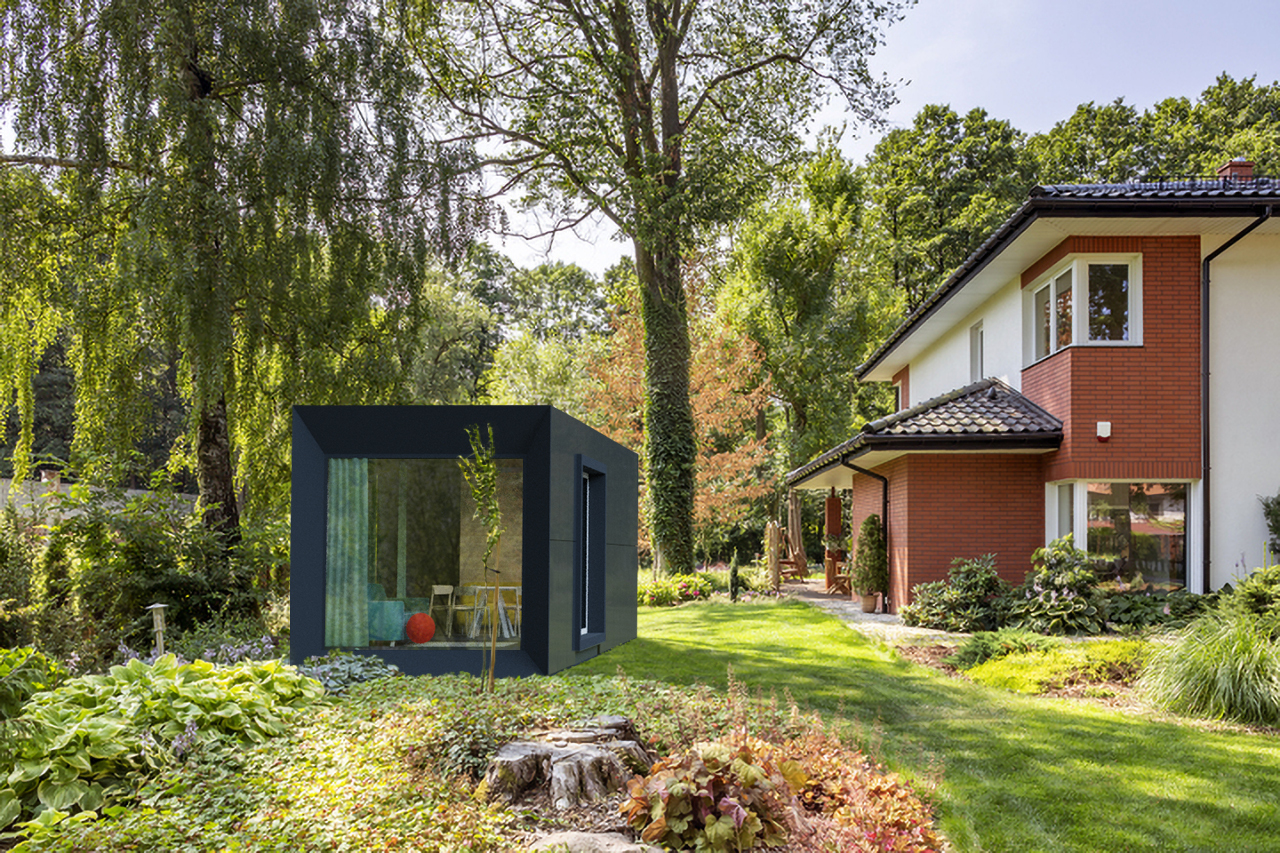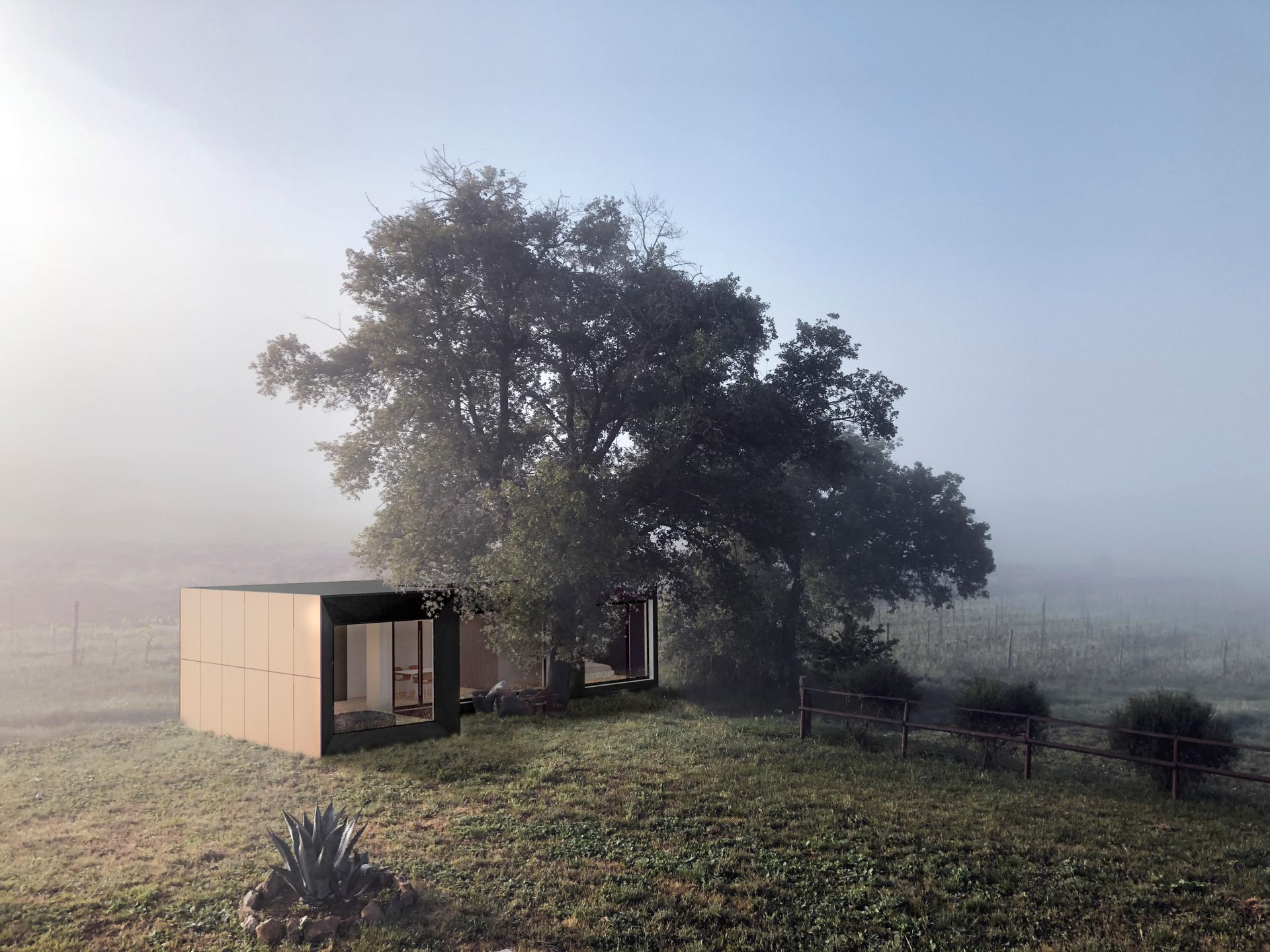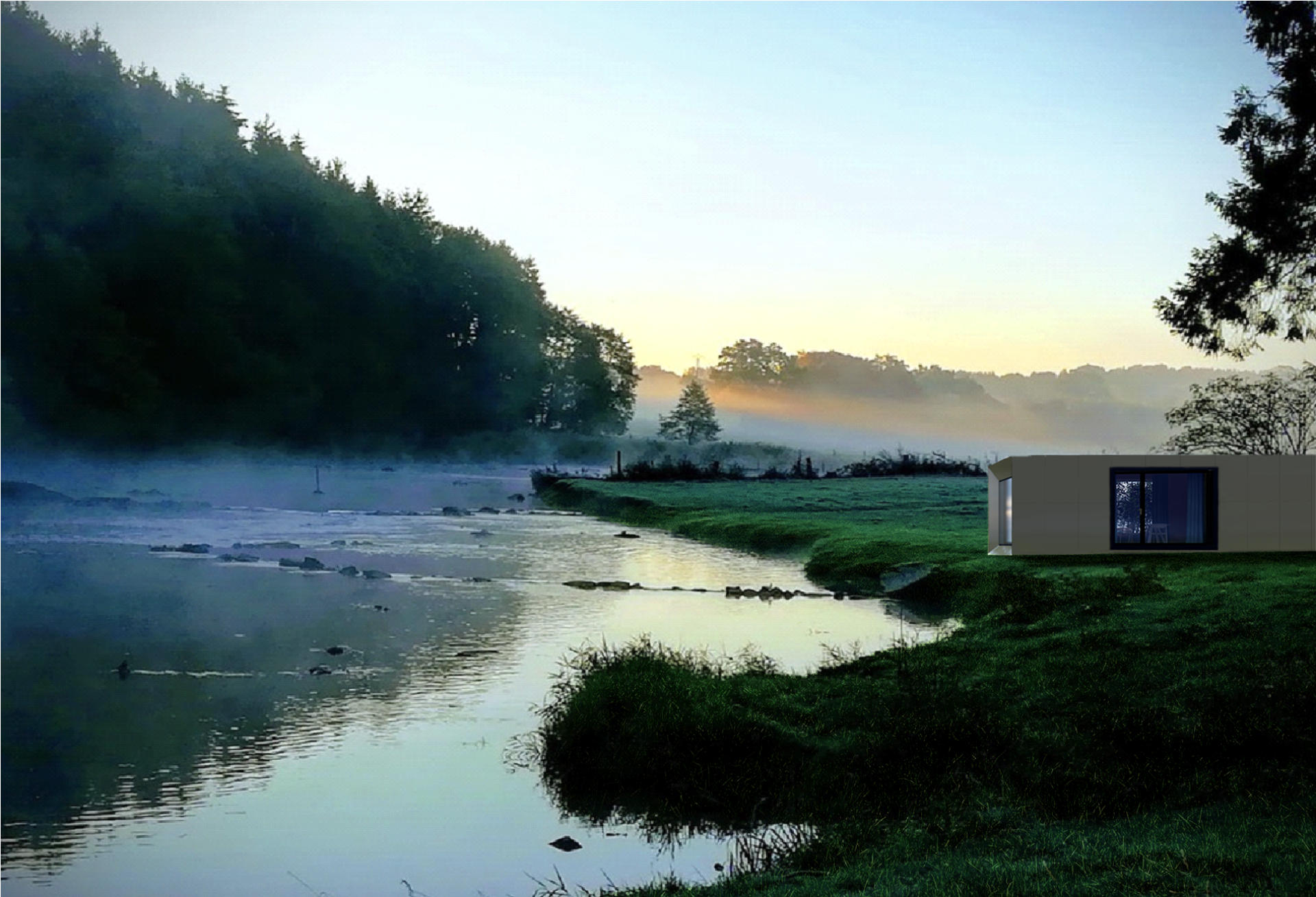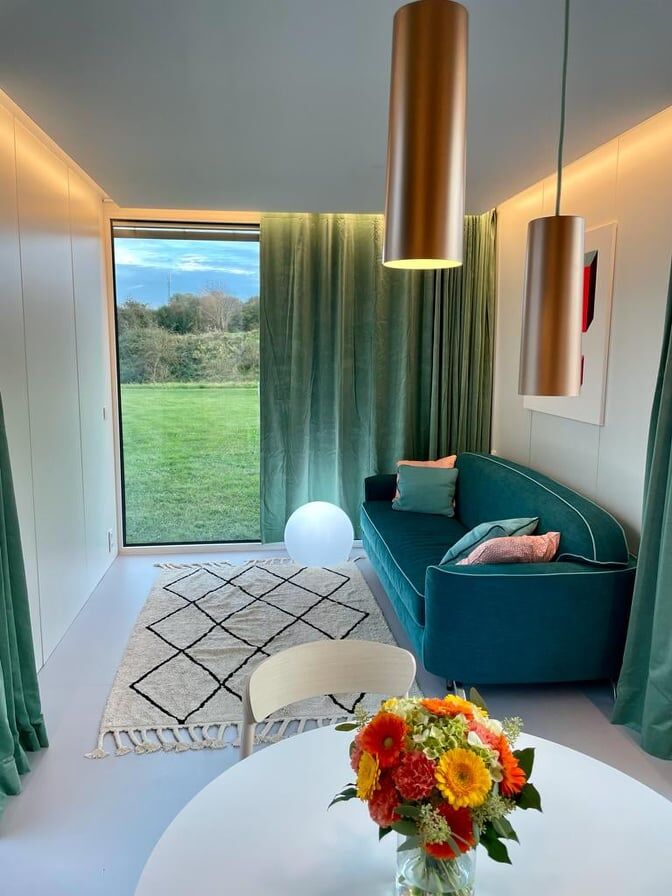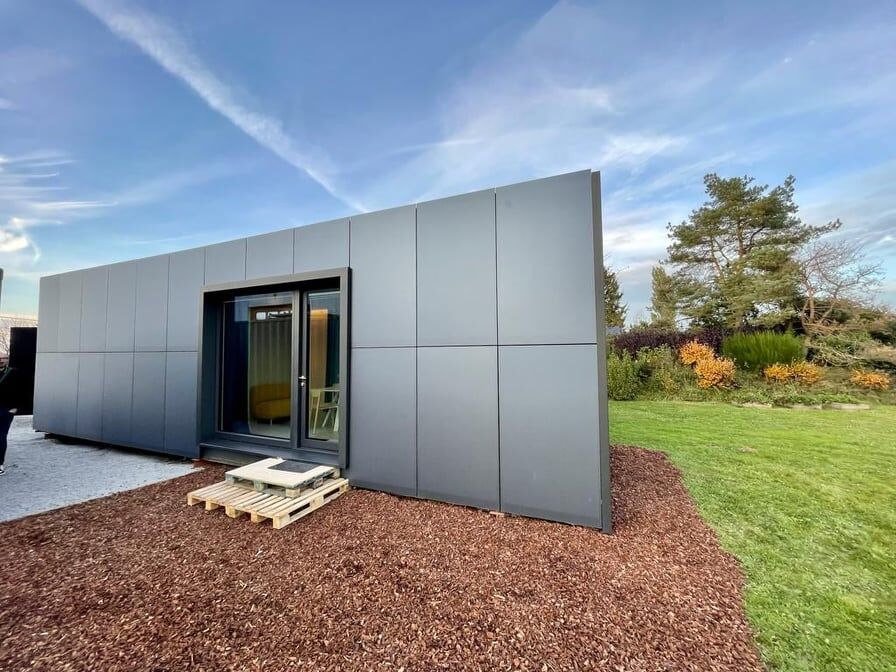Mellow
Basic information
Project Title
Category
Project Description
A space for all your lifes
Mellow is a living space that can be made fully autonomous in energy and water. The modular building is designed as an integral part of the circular economy in order to reduce its environmental impact as much as possible. Mellow is adapted to the changing pace of our lives. For each new change, you can reinvent your space. Like with LEGO®, you can make it bigger, smaller, adjust the shape to your project. Sky is the limit for the "Space inventors" we all are !
Geographical Scope
Project Region
Urban or rural issues
Physical or other transformations
EU Programme or fund
Which funds
Description of the project
Summary
Mellow is most of all the story of a handful of idealists who wanted to bring progress to research in construction, but not to the detriment of the exciting side of exploration. In 2014, Benoit Quevrin, Democo, A2M and the Nelson Group set up a think tank focusing on sustainability and innovation in buildings: FAAST. Its mission was to support its members in a sustainable approach to their projects and to provide them with relevant information. To broaden their horizons and ideas and to tackle the widest possible range of challenges, FAAST organised conferences, workshops and study trips. More and more, the FAAST team wanted to test the new materials that were flooding the market. But it was difficult for its members, whose projects involve thousands of m², to “test out” materials on such huge surface areas.
In 2015 the idea arose of setting up a laboratory unit to run tests on a small surface area. But if they were going to build a space like this, then why not make it autonomous in energy? And in water? And modular? And part of the circular economy? The challenge was launched. Through the years, FAAST has worked with A2m, fine-tuning and experimenting, and defying the eternal laws of traditional construction. The sector began to pay more and more attention. The industry started to think about new needs, not only due to changes in families, but also because of today's climate challenges. In 2019, new players, such as Ark Habitat and Chauff'et Vous, joined the movement. The former plays a role in industrial development and the circular economy model, while the latter is enhancing innovation by developing an HVAC system to provide water autonomy.
Key objectives for sustainability
The circularity of our project is mainly based on 4 pillars:
- industrialization and automation: in the medium term, the assembly of our modules will be automated. Mellow has been studied in order to optimize the reuse of materials as much as possible. The structure of the modules is constructed of steel so that it is practically infinitely reusable.
- The panels are mounted without glue, assembled like Legos and therefore easily removable. Each material, after facelift, is reintegrated into the assembly line in order to create new modules.
- To ensure the maximum circularity of materials, we offer a principle of repurchase to people who no longer need the modules. In this way, the materials used for construction can be got back and reintegrated into the assembly line.
- Mellows are designed, assembled and dismantled in Belgium. The proximity of the plant, as well as the buy-back insurance also allow us to prevent the possible lack of resources that we may face in the coming years.
Sustainability can be revealed in different ways:
- We use environmentally friendly materials for both exterior surfaces and interior fittings (wood fiber insulation, cork floor, etc.). We have at our disposal a database of sustainable materials custom-made for us by our partner Natura Mater.
- Removable, detachable, large screws get stuck in the ground without the need for concrete. Thus, thanks to this zero footprint, the modules appear and disappear according to the needs of each. In this way, we borrow the soil from nature.
- In our model, we also advocate a rational use of energy and water.
In the appendix, you will find the diagram of circularity as we created it.
Key objectives for aesthetics and quality
This project aims to combine the modernity and comfort we know in traditional constructions with a new modular construction method:
- Autonomy in energy and water ensures independence for applicants
- This autonomy, as well as the movement of the modules by truck, boat, helicopter give access to exceptional and unique places of life in the world, without damaging the surrounding nature.
- Mellow demonstrates a clever balance between freedom of use and environmental impact. On the one hand, the user can adapt the indoor temperature, the intensity of the interior lighting, etc.; on the other hand we maintain an optimization of the energy necessary for autonomy and environmental respect. The objective is to give the user a margin of freedom, but with a certain environmental respect. For example, it will be impossible for him to put a thermostat on 30 °.
- The different materials have been chosen to ensure optimal acoustic comfort.
- From an aesthetic point of view, we work with interior designers who have developed a Mellow "brand". Thanks to a database developed by our partner, Natura Mater, they opt for sustainable local materials. The combination of colors and the simplicity of the lines create the inner harmony of a space where you feel good.
- Kromatix solar panels, produced in Switzerland, are as beautiful as they are efficient. They cover Mellow's exterior facades and bring a unique design touch.
Key objectives for inclusion
Currently, we are setting up a crowdfunding project in order to enter the rental market and offer housing to the most disadvantaged people.
The basic modules are sold at a price similar to that of traditional construction (about 1,500€/m²). The 3x3 modules can be assembled to create small projects, and with them a price adapted to the needs. Projects can be adapted to specific needs (PRM, hospital room, etc.).
In addition, we want to take advantage of industrialization and the effect of numbers to reduce costs in the long term, as Tesla was able to do with the electric car.
The debate on automation and robotics is very interesting in the world of construction, and it seems inevitable to us. Rather than allowing industrialization to be imposed as the automotive sector has done, we want to take advantage of automation to reduce strenuous jobs (carrying heavy loads) offer them new services, such as support to users - especially those who need it most, i.e. the elderly, PRMs, etc.
Results in relation to category
We have built a hotel room, which will be placed on the roof of a hotel and rented as a room in the coming months. It is autonomous in energy and water and operates without being connected to the impetrants. This is a world first.
We already work with many suppliers (all Belgian). Thanks to the network of our think tank specialized in sustainability and innovation (FAAST), we regularly work with several players in the construction sector. Several professional and private structures are convinced of the new construction method we offer: while we started marketing our modules in September, we have 3 orders in progress for real estate developers (meeting rooms for top management), and individuals (AirBNB vacation rental).
In order to be consistent with the product we offer, we have also started a reflection on responsible communication, and drafted a charter to this effect.
Finally, it is difficult for us to present relevant results in terms of circularity, since this is a new mode of construction. We will have to have sold and ensured the purchase of several modules in order to test the model.
How Citizens benefit
The Mellow concept can be extended to all projects intended to support all minorities, and all people in difficulty (the homeless, social housing, etc.).
Mellow represents a tool for inclusion: all project leaders are potentially actors of inclusion. How? For example, by housing the elderly or PRMs in your garden and promoting intergenerational exchanges. Other ideas can be put forward by real estate developers or town halls: integrate a nursery near the offices of a company, create spaces for exchange, debate, art, culture for citizens, promote co-living, create meeting places in disadvantaged neighborhoods, etc.
Several town mayors have already shown an interest in building temporary housing to help people in difficulty in their entity.
In addition, we have participated in numerous symposia on alternative housing, where citizens' demands were made to politics. These meetings allowed us to adapt our offer to respond to this new way of living: light housing.
We have set up a monitoring, which will eventually allow the Mellow community to automatically return information (technical and scientific) and their comments, advice, level of satisfaction, in order to ensure continuous improvement.
Physical or other transformations
Innovative character
While conventional buildings usually need to be renovated or destroyed to change their use, Mellow provides unique flexibility on several levels:
- glue-free construction allows assembly and disassembly of entire modules, such as interior panels
- it brings total flexibility to projects that can evolve, whether large buildings (apartments that evolve into a hotel + store for example) or projects on a human scale (a house for 2 people that adds rooms as the household budget increases, as the children arrive. Modules that are removed the day the children leave home).
- buy-back insurance ensures total circularity. It is also a great way for project leaders to adapt their buildings to their ambitions (economic, family, entrepreneurial, etc.)
- self-sufficiency in energy and water, as well as modern comforts allow projects to flourish in unusual places. However, we do not necessarily advocate this type of business in order to leave as much as possible the wilderness.
The principle of industrialization in the construction sector exists very little. It allows you to:
- reduce the number of human-related errors,
- reduce post-construction problems,
- shorten manufacturing times
- no longer be dependent on the weather on construction sites.
Learning transferred to other parties
We found that the construction industry is evolving in different ways. The entire sector is going to need the results and the methods, because it is going to have to adapt to the challenges of the future. Professionals such as architects, engineers (design offices), contractors will have to reinvent themselves.
In addition, real estate developers or contractors of large projects are looking for solutions that would allow them to make their buildings flexible. If a hotel owner wants to redevelop his ground floor into an artists' studio or a multipurpose room for non-profit organizations in the neighborhood in order to create inclusion, it is all the easier with flexible modules than with conventional construction. Or if a municipality wants to transform a school into a place of inclusion composed of a nursery and a reception area for seniors, it can do so more easily.
Mellow represents a new mode of construction that can be used in different contexts:
- an emergency context, as may have been the case during the floods in Belgium this summer, when many people had to be relocated quickly
- a social context where we can quickly provide housing to disadvantaged people. Unlike many substandard dwellings, these would ensure comfort worthy of all for a more affordable price.
- a climatic context, because Mellow's autonomy is made possible on 70% of the planet's surface (according to the Köppen map). The sizing would be adapted to the climatic context, but it can evolve with the deregulation.
- an ecological context, the most ambitious construction project that is today a source of many criticisms (rightly so) and that would best serve ecology: to create the next Olympic Village totally autonomous in energy and water, but also totally removable and movable.

